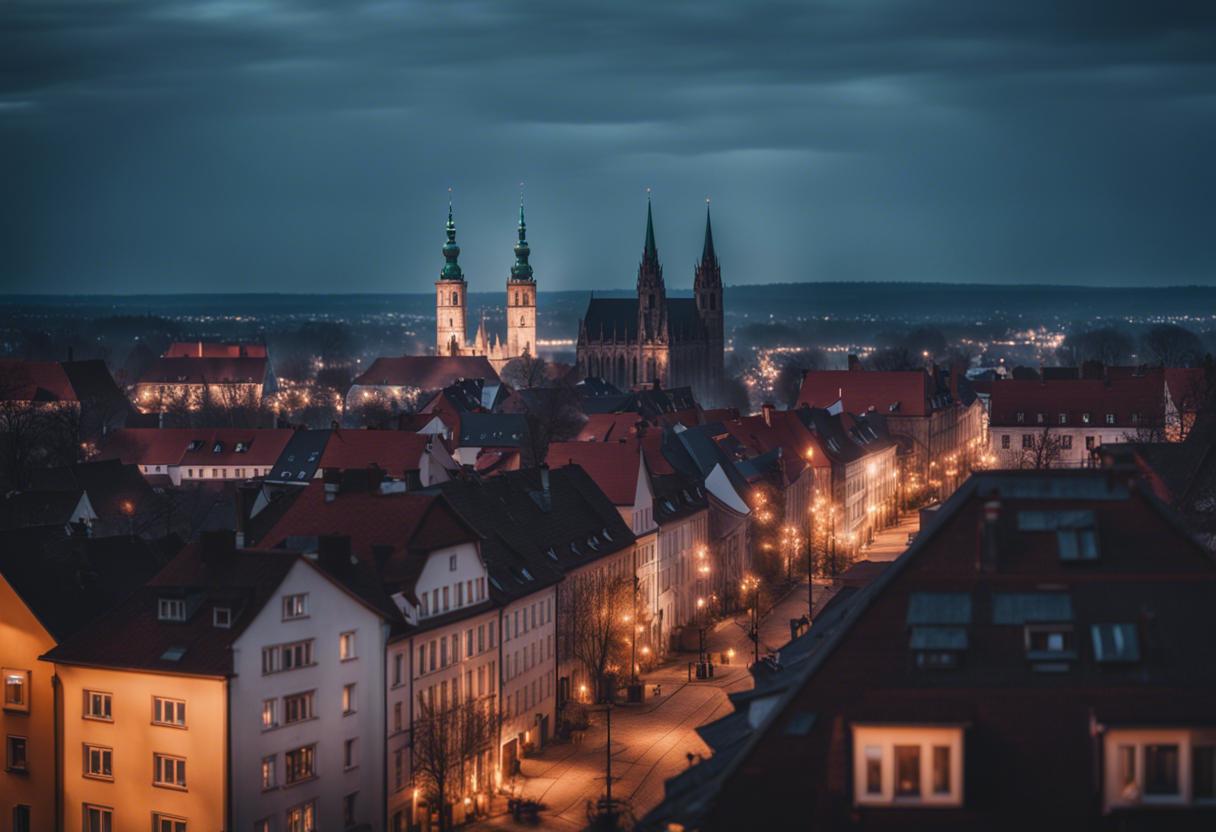The governing coalition parties in Berlin could suffer a significant defeat in the coming weekend, as there’s a noticeable shift in voter preference in eastern Germany towards populist groups. The latest predictions for the upcoming Sunday elections in Thuringia and Saxony indicate that the right-wing Alternative for Germany (AfD) could secure a minimum of 30 per cent votes in both states. The newly formed populist alliance, Sahra Wagenknecht Alliance (BSW), is also predicted to gain up to 18 per cent of the votes.
The prevailing turbulent political climate in the nation’s capital, marked by incessant federal government crises and internal disputes over the past three years, have left the ruling Social Democrats (SPD), led by Olaf Scholz, and their Green Party allies in a precarious position. They may struggle to retain their seats in the regional parliaments of Dresden and Erfurt. Their coalition partner the liberal Free Democratic Party (FDP), is likewise anticipated to be entirely eliminated from the two state parliaments.
The SPD is treading a fine line in the polls, just a pinch above the 5 per cent requirement to gain seats in parliament in both states. This, coupled with the chancellor’s approval rating of 33 per cent, resulted in local SPD leaders appealing to him to maintain a low profile.
Even the central-right Christian Democratic Union (CDU), in power in Saxony since 1990 and steady at 33 per cent, is feeling the pressure from AfD, which is close behind at 30 per cent. Michael Kretschmer, the CDU minister president of Saxony and traditionally a conservative member of his party, has ramped up his law-and-order rhetoric in an attempt to contend with AfD’s strong messaging on immigration. Kretschmer has jointly voiced the need for Germany to drastically reduce its asylum numbers by 90 per cent, from the 300,000 recorded the previous year, warning of an imminent collapse of the system.
Mr Kretschmer voiced his concerns about the substantial migration issue at a gathering in Leipzig, emphasising that it ought to be addressed in a humane fashion. He underscored the importance of empathetic action towards those in need, criticizing extreme populism.
The AfD, a far-right political party, has pledged to stop unlawful migration, introducing the notion of “remigration” in their electoral campaigns. The term implies the deportation of non-native German citizens, an idea that resonates with some party supporters and officials.
Björn Höcke, the AfD leader in Thuringia, made mention of the potential need for the state to secure its borders against migrants. He advocated for self-defense should there be a lapse in protection from the federal government.
Speculation is rife about the potential impact of a fatal knife attack in Solingen by a rejected Syrian refugee on the pending election results. The attack left three dead and eight injured.
In response to increasing political pressure and prolonged disagreements, the Scholz coalition has tabled fresh propositions to outlaw carrying knives on public transportation and enhance synergy between police and intelligence agencies.
Nancy Faeser, Germany’s interior minister from the SPD, intends to reduce state aid for asylum seekers who initially entered the European Union through a different member state to the bare minimum.
Green politicians, historically opposed to deporting individuals back to Afghanistan and Syria, are now advocating for a significant change in refugee policy. On a related note, a charter flight left Leipzig for Kabul carrying 28 Afghan nationals who had been convicted. This marked Germany’s first deportation to Afghanistan following the Taliban resurgence in 2021.
In light of the ongoing Ukraine-Russia conflict, the BSW, headed by former Left politician Sahra Wagenknecht, anticipates gaining support in matters of security and energy. In her campaign, Wagenknecht has expressed criticism towards German arms supplies to Ukraine and the proposed hosting of American mid-range missiles.
On the matter of partnering with the CDU in Saxony, Wagenknecht is willing, provided they do not support arms supplies to Ukraine. She categorically rules out aiding the AfD in gaining power and condemns the disdainful behaviour of their followers. In fact, she suffered a paint attack during a public meeting, underscoring her stance that a collaboration with such individuals is inconceivable.

